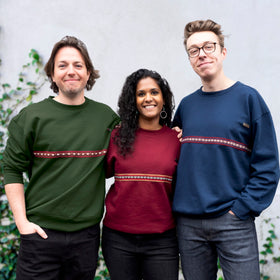
What is the fashion revolution and why you should join the movement
What is Fashion Revolution week?
In 2013, an eight-story commercial building in Bangladesh collapsed killing 1,129 garment workers and injuring over 2,500. These workers were making clothes for brands such as Primark, Benetton, Walmart & Mango. Today, brands like these are still profiting from fast fashion, and their practices continue to violate human rights.
Fashion revolution week was born to remind people of this tragedy and create awareness of the adverse effects of fast fashion, an industry neglecting human rights, profiting from slavery, and encouraging inequality.
Why should you join the Fashion Revolution?
Although the Fashion Revolution week takes center stage a week a year, the movement encourages consumers to be more conscious about the brands they support and the impact their actions have in the world.
When we’re shopping, one of the things we look at most is the price. We don't give a thought to how the product got to the shop, where it was made, or even who made it. We just want the best deal!
A couple of years ago I read an interview with a Chinese factory worker who had to work long hours for low pay. She was deeply unhappy with her job but, when she was making the garments, she thought, “Well, at least this will make whoever buys it happy.”
She later emigrated to the US and found that most of the clothes she’d been making ended up in discount stores. She’d been through hell to make t-shirts that people buy cheap, wear once, and throw away.
When you next buy something, ask yourself: who made this and what were their working conditions? If the price seems too cheap, the workers probably aren’t getting a fair deal.
Why is Handmade Stories part of the Fashion Revolution?
Handmade Stories was born out of a wish to improve the lives of the people we work with.
We work with women in rural communities in the Peruvian Andes, giving them access to the modern economy while letting them work flexibly, so they can be at home with their families. We have an open conversation with them to set the prices, looking at how much the materials cost them, how much time it will take them to weave the motifs, and how much they want to earn, so we can set fair prices.
We follow this process with all the artisans we work with.
And our clothes are made in small, family-owned factories in Peru that employ local people and pay them a fair wage.






